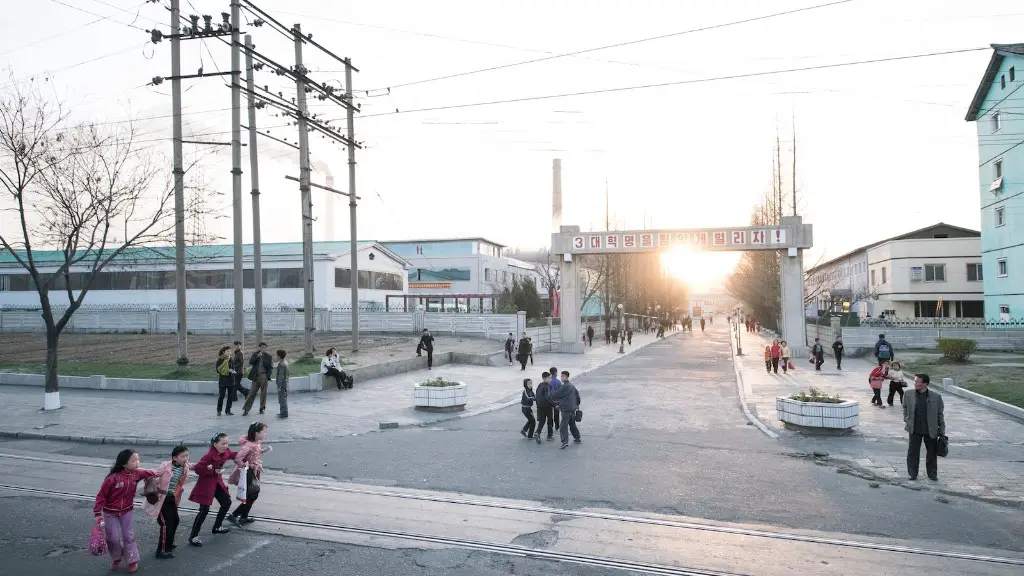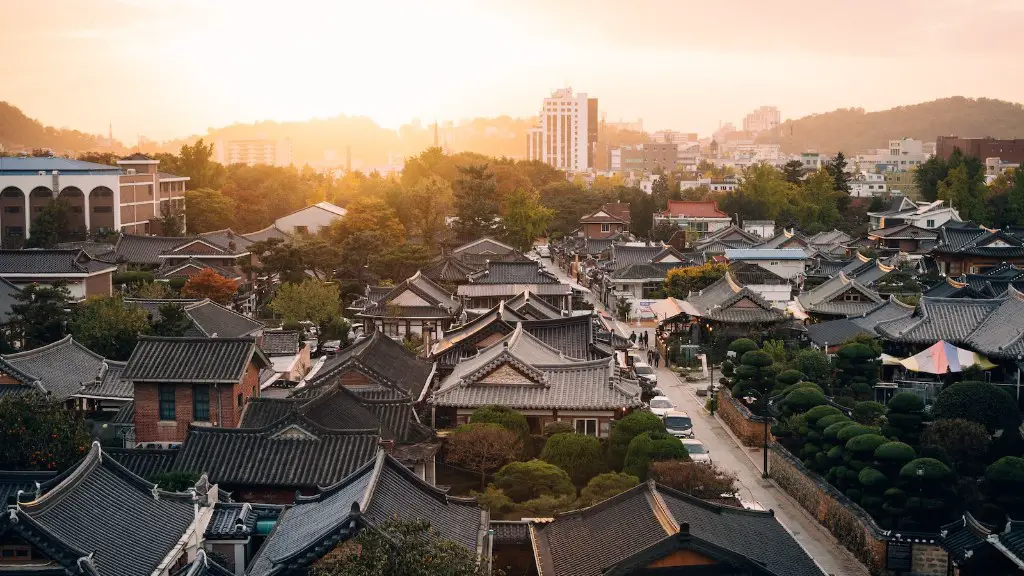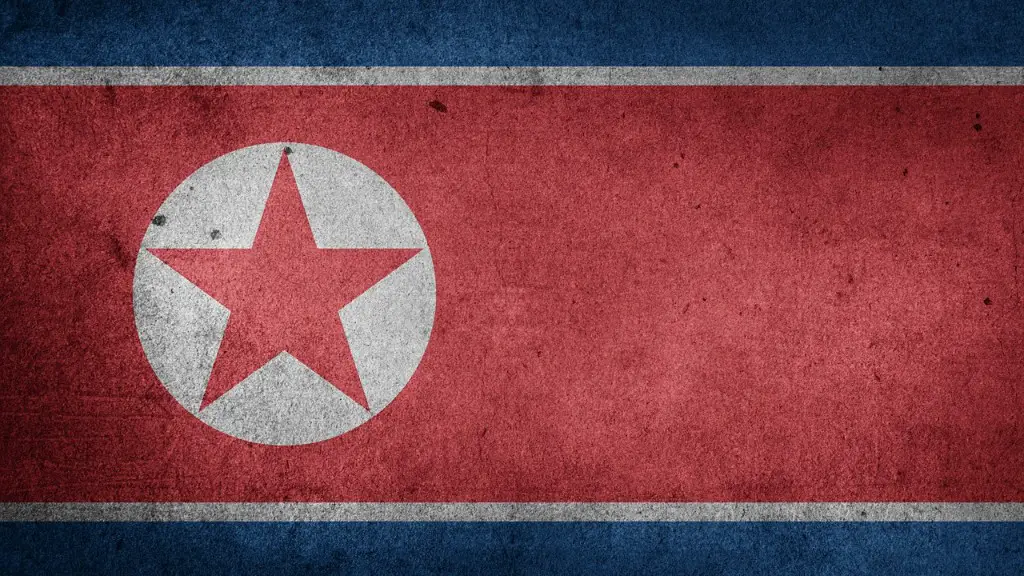Poverty is an issue that affects countless countries and people around the world. The issue remains particularly acute in North Korea, where an estimated 70% of the population is living in poverty according to a United Nations estimate in 2019. In this article, we will explore what has been driving poverty in North Korea, the complexities of the issue, and why it is such an important issue for the international community to pay attention to.
North Korea’s levels of poverty are the result of a complex set of factors, from a shortage of resources to the legacy of its Communist past. The country’s limited access to the global economy and its reliance on a repressive and centralized government has had a destabilizing effect on its economy. North Korea has also been subject to a number of international sanctions related to its nuclear program, further contributing to its poverty levels.
In addition to these structural factors, the people of North Korea are suffering from an increasingly dire humanitarian situation. Food insecurity is rampant, and malnutrition is a serious issue. Access to basic medical care and other services is limited and inadequate. Trade restrictions, economic mismanagement, and the government’s unwillingness to implement economic reforms have all contributed to the problem.
The situation has been further exacerbated by the COVID-19 pandemic. North Korea was one of the last countries to report cases of the virus, and its government has been slow to recognize the threat posed by the disease. In addition, international travel restrictions have limited access to resources and aid. As a result, the already precarious situation of many people living in poverty in North Korea has only been exacerbated.
The international community has recognized the severity of the situation, and has made a point of providing aid when possible. Despite ongoing tensions between North Korea and the world, the United Nations and other aid organizations have played an important role in providing assistance to those in need. However, the situation remains far from ideal, and much more needs to be done in order to help people in North Korea escape poverty.
The situation in North Korea is an urgent reminder that poverty is a deeply global problem, and one that requires both local and global action. It is also a reminder of the importance of developing countries having access to the global economy, and to international aid when needed. As long as these issues remain problematic, the development of North Korea and its citizens will be held back.
Sanctions
The international community has implemented a number of sanctions against North Korea in an effort to curb its nuclear weapons program. These sanctions have had a devastating effect on the country’s economy, as it is unable to access resources or global markets, or even to trade with its nearest neighbors. As a result, citizens are unable to access basic necessities and essential services, leading to increased poverty.
The international community has been criticized for what has been seen as a hypocritical application of sanctions. Many argue that the sanctions have been ineffective, and actually done more harm than good, by depriving the citizens of North Korea of much needed resources and aid. Critics are also concerned that these sanctions could be damaging long-term prospects of economic development in the country.
Some have suggested that the international community shift their focus away from punishing North Korea and instead focus on providing humanitarian aid and economic assistance. This would allow the citizens of North Korea to access the resources and assistance they need, and to start taking steps towards economic and social improvement.
However, there is still much debate within the international community about the best approach and whether sanctions are the right way to go. As the situation remains a complex one, and all solutions will require a holistic approach to tackling poverty in the country.
Cultural Stigma
In North Korea, poverty is not just an economic issue, but also a cultural one. There is a strong stigma associated with poverty and being poor, which makes it harder for people in poverty to speak out, receive help, and access vital services. As a result, many people in poverty remain invisible to the outside world and are unable to access aid or assistance.
The stigma associated with poverty is further compounded by cultural attitudes towards the poor. This means that people in poverty are often seen as lazy or shiftless, which serves to make it even more difficult for them to access the help they need.
The culture of poverty means that those living in poverty are often neglected by the government, and left without the resources they need. This can make it even more difficult for people to escape poverty and makes it all the more important for the international community to step in and make sure that people in North Korea are receiving the support they need.
In order for poverty to be addressed effectively in North Korea, a shift in cultural attitudes towards the poor is needed. This would require a combination of government action and international support to ensure that the country’s citizens are able to access the resources they need and to create a more tolerant and accepting culture.
International Aid
International aid has been an important part of the effort to reduce poverty in North Korea. International aid organizations have been working in the country for decades, providing help and support to those in need. In recent years, aid efforts have been stepped up, with the United Nations and other organizations playing an increasingly significant role in providing vital aid and assistance.
Aid efforts have come in many forms, from providing food, medicine, and basic necessities, to offering training and specialized assistance. Aid organizations have also been able to support long-term economic development, providing assistance to entrepreneurs and businesses, helping to create jobs and spur economic growth.
However, international aid comes with its own challenges. The country’s restrictive government means that aid groups are often restricted in how they can operate and where they can go, and are limited in how much aid they can provide. This can limit the impact of international aid efforts, and calls for increased support from the international community.
Overall, international aid is an essential part of the effort to reduce poverty in North Korea. However, it is only part of the solution. In order to make real and lasting change, the people of North Korea need to have access to the resources they need, and the international community needs to support the country in its efforts to create economic stability and long-term development.
Economic Reforms
In order to truly address the issue of poverty in North Korea, the country needs to institute economic reforms and create a more open and inclusive economy. This would require changes to the country’s centralized economic system and stronger ties to the global economy. Economic reforms would involve liberalizing and opening up the country’s markets and allowing more access to foreign goods and services. This would create new opportunities for investment, entrepreneurship and job creation as well as decrease dependence on the international economy.
However, economic reforms come with their own challenges. The government of North Korea has a reputation for being repressive and authoritarian, and there are concerns that opening up the economy could weaken the control of the government and empower the better-off. In addition, there are deep-seated ideological divisions in the country, which could make it difficult to implement the necessary reforms.
Overall, economic reform is essential for reducing poverty in North Korea. However, this will require a careful balancing action, and the government of North Korea must be willing to accept international support and advice. The international community should also be prepared to play an active role in helping to ensure economic reform is successful and that the benefits are felt by all citizens of the country.
Education
Education is an important factor in reducing poverty and promoting long-term economic development. Education can help people in poverty to gain the skills and knowledge they need to escape poverty and build a better future for themselves and their families. In North Korea, educational opportunities are severely limited, as the government is reluctant to invest in education, and the school system remains heavily centralized.
In order to reduce poverty in North Korea, providing better access to education is essential. This would involve expanding educational opportunities, investing in new technology and infrastructure, and fostering an environment where education is valued and respected. It would also require stronger ties with the international community, as educational exchanges and other programs could help provide access to resources and expertise.
In addition to relying on the international community, North Korea must also take steps to improve and expand its educational system. This would involve reforming the curriculum and seeking to provide access to higher education and special programs for those in disadvantaged areas. This could offer the opportunity for people in poverty to gain access to skills and resources that would help them move out of poverty and create a better future for themselves and their families.
Conclusion
Poverty is a major problem in North Korea, and one that requires urgent attention from the international community. A combination of sanctions, cultural stigma, lack of access to resources and aid, and a poorly functioning economy has left a significant portion of the population living in poverty. In order to reduce poverty in North Korea, economic reform, better access to education, and increased international aid and support are all needed. It is a complex problem, and one that will require long-term and comprehensive solutions. However, with the right resources and help, there is hope that the situation can be improved.





